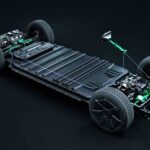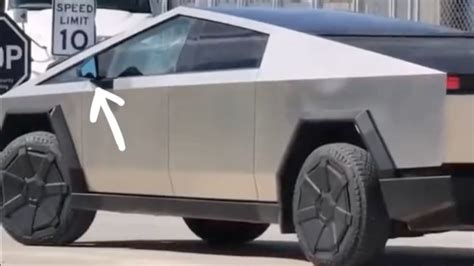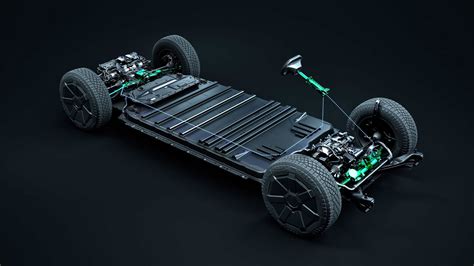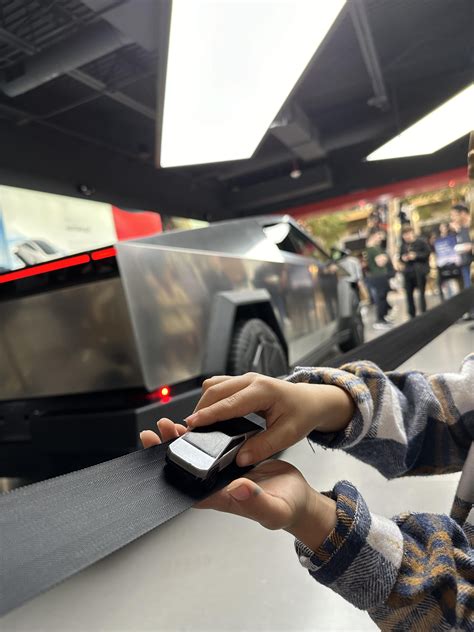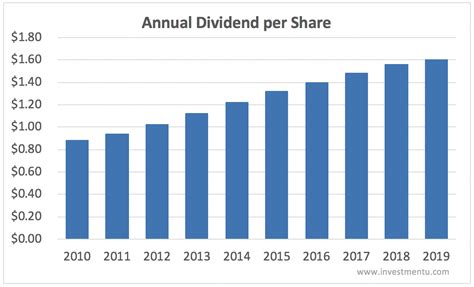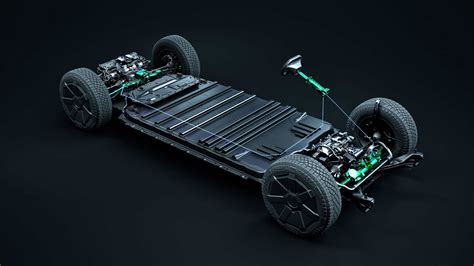
China’s burgeoning electric vehicle (EV) market is set to welcome a new contender aiming to challenge Tesla’s Cybertruck with the anticipated launch of the Yuanhang Y7, an all-electric pickup truck boasting a steer-by-wire system and a host of distinctive features, all starting at a competitive price of $41,000.
The Yuanhang Y7, produced by Yuanhang Auto, a subsidiary of Dayun Group, is positioned to compete directly with Tesla in the rapidly expanding EV sector. Yuanhang Auto highlights that the Y7 integrates cutting-edge technology and design elements aimed at capturing a substantial portion of the electric pickup truck market, both in China and potentially abroad.
Design and Features
The Y7 distinguishes itself with a futuristic design that blends ruggedness with aerodynamic efficiency. The vehicle’s exterior showcases sharp lines, a minimalist front fascia, and an overall aesthetic that aligns with contemporary EV design trends. The steer-by-wire system is a key technological highlight, eliminating the mechanical linkage between the steering wheel and the wheels, thus enabling enhanced control and responsiveness. This system is coupled with advanced driver-assistance systems (ADAS) to provide a safe and intuitive driving experience.
Inside, the Y7 boasts a spacious cabin equipped with high-resolution displays, premium materials, and an array of smart features designed to enhance comfort and convenience. The infotainment system includes seamless smartphone integration, over-the-air (OTA) updates, and a suite of connected services. The vehicle also incorporates advanced safety features, such as automatic emergency braking, lane-keeping assist, and adaptive cruise control, ensuring a comprehensive safety net for drivers and passengers.
Performance and Range
While detailed specifications regarding the Y7’s battery capacity and motor output remain limited in currently available English sources, Yuanhang Auto has indicated that the vehicle will offer competitive range and performance figures. Industry analysts expect the Y7 to deliver a range exceeding 300 miles (approximately 480 kilometers) on a single charge, with acceleration capabilities rivaling other high-performance EVs in its class.
The Y7’s powertrain is designed for optimal efficiency and power delivery, with multiple driving modes to cater to different road conditions and driver preferences. The vehicle is also equipped with fast-charging capabilities, allowing for rapid replenishment of the battery at compatible charging stations.
Market Positioning and Competition
The Yuanhang Y7 enters a competitive landscape that includes established players like Tesla, as well as emerging EV manufacturers. However, its competitive pricing and unique feature set position it as an attractive alternative for consumers seeking an electric pickup truck that offers both value and innovation.
The Y7’s target market includes environmentally conscious consumers, tech enthusiasts, and businesses looking to electrify their fleets. Yuanhang Auto plans to leverage its existing manufacturing infrastructure and distribution network to ensure widespread availability of the Y7 across China. The company also intends to explore export opportunities in select international markets, contingent on regulatory approvals and market demand.
Steer-by-Wire Technology: A Deeper Dive
The steer-by-wire system is one of the Y7’s most significant technological advancements. Unlike traditional steering systems that rely on a mechanical connection between the steering wheel and the wheels, steer-by-wire utilizes electronic sensors and actuators to translate the driver’s steering inputs into precise wheel movements.
This technology offers several advantages:
- Enhanced Control: Steer-by-wire systems can provide more precise and responsive steering, particularly at higher speeds.
- Improved Safety: By eliminating the mechanical linkage, steer-by-wire reduces the risk of steering column intrusion in the event of a collision.
- Customizable Steering Feel: The system allows for adjustments to steering sensitivity and feedback, enabling drivers to personalize their driving experience.
- Integration with ADAS: Steer-by-wire facilitates seamless integration with advanced driver-assistance systems, such as lane-keeping assist and autonomous driving features.
However, steer-by-wire systems also present some challenges:
- Reliability: The system relies on electronic components, which are susceptible to failure. Redundancy and fail-safe mechanisms are crucial to ensure continued steering control in the event of a malfunction.
- Complexity: Steer-by-wire systems are more complex than traditional steering systems, requiring sophisticated software and hardware.
- Cost: The technology is more expensive to implement than traditional steering systems, which can impact the vehicle’s overall price.
Yuanhang Auto: Background and Strategy
Yuanhang Auto is a relatively new player in the Chinese EV market, but it benefits from the backing of Dayun Group, a well-established automotive manufacturer with a long history of producing commercial vehicles and passenger cars.
Yuanhang Auto’s strategy is to focus on developing innovative EVs that cater to specific market segments. The company’s product portfolio includes a range of electric SUVs, sedans, and now, the Y7 electric pickup truck. Yuanhang Auto aims to differentiate itself from competitors by offering vehicles with advanced technology, distinctive design, and competitive pricing.
The company is investing heavily in research and development to stay ahead of the curve in the rapidly evolving EV market. Yuanhang Auto is also establishing strategic partnerships with leading technology providers to ensure access to the latest innovations in battery technology, autonomous driving, and connectivity.
The Chinese EV Market: An Overview
China is the world’s largest EV market, accounting for a significant share of global EV sales. The Chinese government has been actively promoting the adoption of EVs through a combination of subsidies, tax incentives, and regulations.
The Chinese EV market is characterized by intense competition, with numerous domestic and international manufacturers vying for market share. Tesla is a major player in the Chinese EV market, but it faces increasing competition from local brands such as BYD, Nio, Xpeng, and now, Yuanhang Auto.
The Chinese government’s policies and regulations have played a crucial role in shaping the EV market. The government has set ambitious targets for EV adoption and has implemented policies to encourage the development of charging infrastructure and battery technology.
The Future of Electric Pickup Trucks
Electric pickup trucks are gaining traction as a viable alternative to traditional gasoline-powered trucks. Several factors are driving this trend:
- Environmental Concerns: Consumers are increasingly concerned about the environmental impact of gasoline-powered vehicles and are seeking cleaner alternatives.
- Fuel Efficiency: Electric pickup trucks offer superior fuel efficiency compared to gasoline-powered trucks, resulting in significant cost savings over the vehicle’s lifespan.
- Performance: Electric powertrains deliver instant torque and rapid acceleration, making electric pickup trucks fun to drive.
- Government Incentives: Governments around the world are offering incentives to encourage the adoption of electric vehicles, including electric pickup trucks.
The market for electric pickup trucks is expected to grow rapidly in the coming years, driven by these factors. Tesla’s Cybertruck has generated significant interest in the electric pickup truck segment, and other manufacturers are now entering the market with their own electric pickup truck offerings.
Challenges and Opportunities
The Yuanhang Y7 faces several challenges as it enters the competitive EV market:
- Brand Recognition: Yuanhang Auto is a relatively unknown brand, and it will need to invest in marketing and branding to build awareness and credibility among consumers.
- Competition: The EV market is highly competitive, with numerous established players and emerging startups vying for market share.
- Supply Chain: The global supply chain for EV components, such as batteries and semiconductors, is under pressure, which could impact Yuanhang Auto’s ability to ramp up production.
- Infrastructure: The availability of charging infrastructure is still limited in some areas, which could deter some consumers from purchasing an electric pickup truck.
Despite these challenges, the Yuanhang Y7 also has several opportunities:
- Growing EV Market: The global EV market is growing rapidly, providing a large and expanding target market for the Y7.
- Government Support: The Chinese government is actively supporting the development of the EV industry, which could benefit Yuanhang Auto.
- Innovative Technology: The Y7’s steer-by-wire system and other advanced technologies could differentiate it from competitors.
- Competitive Pricing: The Y7’s competitive pricing could make it an attractive option for consumers seeking an affordable electric pickup truck.
Detailed Specifications (Expected)
While official, comprehensive specifications are still pending from direct English-language sources, extrapolating from industry trends and comparative analyses allows us to anticipate the following:
- Battery Capacity: Expect a battery pack in the range of 75 kWh to 100 kWh, providing a usable capacity that aligns with competitor offerings and enables the targeted range.
- Range: A driving range of 300 to 350 miles (480 to 560 km) is likely, placing it competitively within the current EV pickup truck market. This figure is crucial for attracting consumers concerned about range anxiety.
- Motor Configuration: Most likely a dual-motor configuration for all-wheel drive capability, delivering a combined output of around 300-400 horsepower. This will ensure adequate performance for both on-road and off-road driving.
- Acceleration: An estimated 0-60 mph (0-97 km/h) time of around 6-7 seconds, consistent with other electric vehicles in its class.
- Charging: Support for both AC Level 2 charging and DC fast charging, with a charging rate capable of adding 150-200 miles of range in approximately 30 minutes at a compatible DC fast charging station. This is a critical factor for user convenience.
- Payload and Towing Capacity: While specific figures are unavailable, the Y7 will likely aim for a payload capacity of at least 1,500 pounds and a towing capacity of around 7,500 pounds to be competitive within the pickup truck segment. These figures are essential for appealing to consumers who use pickup trucks for work and recreational activities.
- Dimensions: Expect dimensions similar to mid-size pickup trucks, offering a balance between maneuverability and cargo space.
- Infotainment System: A large touchscreen display (likely 15+ inches) with integrated navigation, smartphone connectivity (Apple CarPlay and Android Auto), and over-the-air software updates.
- Safety Features: A comprehensive suite of advanced driver-assistance systems (ADAS), including automatic emergency braking, lane-keeping assist, adaptive cruise control, blind-spot monitoring, and rear cross-traffic alert.
The Broader Context of Chinese Automotive Innovation
The emergence of the Yuanhang Y7 underscores China’s growing prowess in the automotive industry, particularly in the electric vehicle sector. For decades, China was largely seen as a follower, often replicating designs and technologies from Western and Japanese automakers. However, the country has undergone a remarkable transformation, fueled by significant government investment, a rapidly growing domestic market, and a culture of innovation.
Chinese automakers are now at the forefront of electric vehicle technology, leading the way in areas such as battery technology, electric motor design, and autonomous driving. Companies like BYD, Nio, Xpeng, and now Yuanhang Auto are pushing the boundaries of innovation and challenging the dominance of established players like Tesla.
This shift is not limited to electric vehicles. Chinese automakers are also making significant strides in other areas, such as internal combustion engine technology, advanced materials, and manufacturing processes. The country is rapidly becoming a global automotive powerhouse, and its influence is only expected to grow in the years to come.
Impact on the Global Automotive Market
The rise of Chinese automakers is having a profound impact on the global automotive market. These companies are not only competing in the Chinese market but are also increasingly exporting their vehicles to other countries.
The competitive pricing and advanced technology of Chinese vehicles are putting pressure on established automakers to innovate and reduce costs. Western and Japanese automakers are now scrambling to catch up with their Chinese counterparts in the electric vehicle segment.
The emergence of Chinese automakers is also reshaping the global automotive supply chain. China is now a major producer of batteries, electric motors, and other key components for electric vehicles. This has given Chinese automakers a significant advantage in terms of cost and access to technology.
Conclusion
The Yuanhang Y7 represents a bold step for Yuanhang Auto and a significant development in the Chinese EV market. With its competitive pricing, innovative steer-by-wire technology, and a host of advanced features, the Y7 has the potential to disrupt the electric pickup truck segment and challenge the dominance of established players. While challenges remain, the Y7’s arrival underscores China’s growing automotive prowess and its ambition to become a global leader in the electric vehicle industry. The Y7 is not just another EV; it’s a symbol of China’s automotive evolution and its determination to shape the future of transportation. The impact of this vehicle, both domestically and internationally, will be closely watched as it navigates the complexities of a rapidly changing market landscape. Whether it achieves widespread success or serves as a stepping stone for future innovations, the Yuanhang Y7 undeniably marks a significant moment in the ongoing story of electric vehicle development.
Frequently Asked Questions (FAQs)
1. What is the Yuanhang Y7, and who makes it?
The Yuanhang Y7 is an all-electric pickup truck produced by Yuanhang Auto, a subsidiary of Dayun Group. It’s designed to compete with other electric trucks, including the Tesla Cybertruck, offering a steer-by-wire system and other advanced features.
2. How much does the Yuanhang Y7 cost?
The Yuanhang Y7 is expected to start at a price of around $41,000. This is a competitive price point aimed at attracting consumers in the electric vehicle market.
3. What is steer-by-wire technology, and what are its benefits in the Yuanhang Y7?
Steer-by-wire technology replaces the mechanical linkage between the steering wheel and the wheels with an electronic system. This offers several benefits, including enhanced control, improved safety (by reducing steering column intrusion in collisions), customizable steering feel, and seamless integration with advanced driver-assistance systems (ADAS).
4. What is the expected range and performance of the Yuanhang Y7?
While detailed specifications are still emerging, industry analysts expect the Yuanhang Y7 to deliver a range exceeding 300 miles (approximately 480 kilometers) on a single charge. It is also expected to have acceleration capabilities comparable to other high-performance EVs in its class, with a likely dual-motor configuration.
5. Where will the Yuanhang Y7 be sold, and what are its main competitors?
The Yuanhang Y7 is initially expected to be sold in China. Yuanhang Auto also intends to explore export opportunities in select international markets, depending on regulatory approvals and market demand. Its main competitors include the Tesla Cybertruck, as well as other electric pickup trucks from both established automakers and emerging EV manufacturers.



